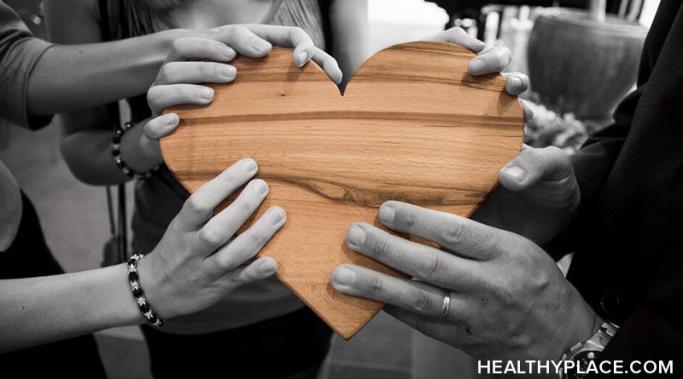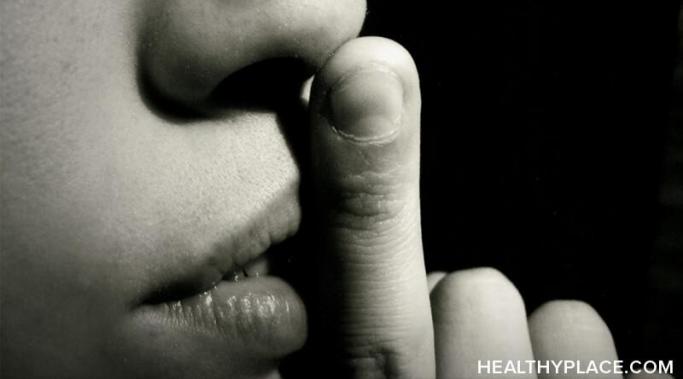Blogs
Setting goals is a great way to move your life forward whether you have a mental illness or not. Doctors diagnosed me with bulimia and schizoaffective disorder about 10 years ago, but mental illnesses haven’t stopped me from wanting my own successful business. It is easy to get off track when you’re struggling with symptoms of a mental illness, but I’ve remained as persistent as possible. Here's how I set goals with a mental illness.
Because of my bipolar disorder, I fake happiness – a lot – like, all the time; like, every time I leave the house. This is due to several factors but, obviously, one of the primary ones is that I, typically, am not actually happy. I am, typically, depressed. And people don’t like that. People don’t like constantly-depressed people. So my bipolar disorder forces me to fake happiness.
People with attention-deficit/hyperactivity disorder (ADHD) experience a sense of urgency. In fact, people with ADHD have a complicated relationship with time in general. ADHD-ers often suffer from "time blindness” that makes time management difficult because we often can't accurately measure time. It can make both everything and nothing seem urgent. Today, I would like to address this “now or never” aspect of adult ADHD and urgency.
Inspiration? A mental hospital? It would not surprise me if you had to read the title of this blog post twice.
One of the hardest symptoms of bipolar disorder is racing thoughts. These racing thoughts can lead to flashbacks of things you've tried to forget. When I'm manic, I'm left with little-to-no sleep because I just can't seem to shut my mind off. I'm left reliving every bad thing that has happened to me and I begin to obsess about everything that could happen to me. Bipolar's racing thoughts are hard to deal with.
Clickbait can increase mental health stigma. In the fast-paced world of the Internet, where everyone is vying for even a moment of attention, clickbait has become the way to get people to come to your page, even for sensitive matters such as people’s personal stories of mental illness. Unfortunately, sensationalism takes over and stories get warped to where they sometimes don't even reflect reality. In stories of mental illness, sensationalistic clickbait contributes heavily to stigma.
At first, the idea that sexual promiscuity can result from childhood sexual abuse seems illogical. Wouldn't someone who suffered sexual abuse have difficulty creating intimate relationships and work to avoid personal contact? While this can often be the case, a review of the research on childhood sexual abuse (from the American Academy of Experts in Traumatic Stress, or AAETS) confirms that a large number of survivors engage in promiscuous behaviors, even those who turn away close relationships. Here are some of the reasons why childhood sexual abuse can lead to promiscuity.
For two years I refused to even consider electroconvulsive therapy (ECT) for my severely depressed daughter. After all, I saw those 1950s movies—I saw those patients emerge zombie-like with no memory. But then my daughter’s life became so bleak we had no choice but to try electroconvulsive therapy, and I’ve kicked myself for letting her suffer so long.
Grieving in binge eating disorder recovery matters. It may seem weird to think that you need to grieve the loss of your eating disorder as if it were a person. Let's really think about it though. I know for me, my eating disorder served a big purpose in my life and was, at one point, my only friend. As necessary as ridding this disease from my life was it was still a loss and required me to grieve. This is a challenging part of the process but is absolutely necessary if we are to move on and find wellness. Grief in binge eating disorder recovery is important.
At work, many of us don't consider using a creative outlet to cope with stress, but we often stress out about our actions and whether we are adhering to guidelines. Sometimes the stress follows us home and causes us to feel restricted about what we can or should do. But part of leisure time can include being creative—having hobbies that help us find ourselves, know ourselves, express ourselves, and set ourselves apart from the rest of the world. Read this article to learn about how to find and use creative outlets to cope with stress at work.









